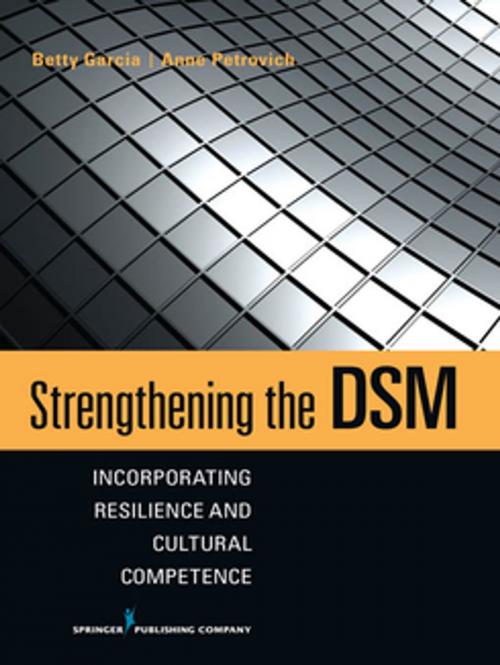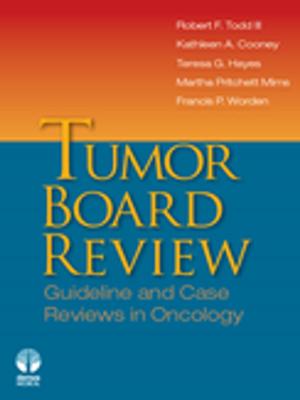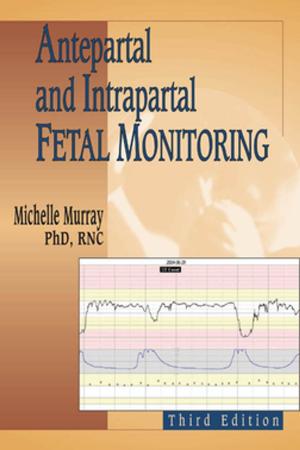Strengthening the DSM
Incorporating Resilience and Cultural Competence
Nonfiction, Social & Cultural Studies, Social Science, Social Work| Author: | Barbara Stevens Barnum, PhD, Dr. Betty Garcia, PhD, LCSW, Anne Petrovich, PhD, LCSW | ISBN: | 9780826118820 |
| Publisher: | Springer Publishing Company | Publication: | April 15, 2011 |
| Imprint: | Springer Publishing Company | Language: | English |
| Author: | Barbara Stevens Barnum, PhD, Dr. Betty Garcia, PhD, LCSW, Anne Petrovich, PhD, LCSW |
| ISBN: | 9780826118820 |
| Publisher: | Springer Publishing Company |
| Publication: | April 15, 2011 |
| Imprint: | Springer Publishing Company |
| Language: | English |
As it stands, the DSM fails to address important sources of strength and resiliency that can significantly affect diagnosis and treatment. The authors of this transformative volume propose enhancements to the current diagnostic and classification system that encompass the biopsychosocial, cultural, and spiritual milieus of individuals and acknowledge the strengths originating from personal, family, and community resources. This proposed Axis VI addresses contextual and individual factors related to diversity, equity, and resiliency, thereby enabling an understanding of the whole person and offering significant resources for treatment.
Within each chapter the authors demonstrate the use of strength-based multicultural diagnostic processes and application of Axis VI to specific disorders, including mood disorders, anxiety disorders, conduct disorders, oppositional/defiant disorder, dementia/Alzheimer's disease, schizophrenia and other psychoses, and substance-related and co-occurring disorders. The text also reviews relevant etiology and evidence-based research for each disorder and highlights current strength-based and culturally competent approaches to diagnosis and treatment. For the utmost clarification, case vignettes for each disorder describe diagnosis with and without the use of Axis VI.
Key Features:
- Demonstrates the potential of a strength-based, culturally competent approach to improve mental health diagnosis and treatment
- Addresses current perspectives on the role of biological, genetic, and psychosocial factors in mental illness
- Includes current research on the course of illness and findings on co-occurring disorders, as well as risk and protective factors
- Identifies evidence-informed practice that builds on neurobiological and psychosocial findings
- Explores factors related to social justice and disempowerment issues in relation to disorders
- Offers current findings from equity and diversity-based research
- Reviews current DSM-5 discussion of specific disorders
- Presents case vignettes including their multiaxial diagnosis with and without Axis VI
As it stands, the DSM fails to address important sources of strength and resiliency that can significantly affect diagnosis and treatment. The authors of this transformative volume propose enhancements to the current diagnostic and classification system that encompass the biopsychosocial, cultural, and spiritual milieus of individuals and acknowledge the strengths originating from personal, family, and community resources. This proposed Axis VI addresses contextual and individual factors related to diversity, equity, and resiliency, thereby enabling an understanding of the whole person and offering significant resources for treatment.
Within each chapter the authors demonstrate the use of strength-based multicultural diagnostic processes and application of Axis VI to specific disorders, including mood disorders, anxiety disorders, conduct disorders, oppositional/defiant disorder, dementia/Alzheimer's disease, schizophrenia and other psychoses, and substance-related and co-occurring disorders. The text also reviews relevant etiology and evidence-based research for each disorder and highlights current strength-based and culturally competent approaches to diagnosis and treatment. For the utmost clarification, case vignettes for each disorder describe diagnosis with and without the use of Axis VI.
Key Features:
- Demonstrates the potential of a strength-based, culturally competent approach to improve mental health diagnosis and treatment
- Addresses current perspectives on the role of biological, genetic, and psychosocial factors in mental illness
- Includes current research on the course of illness and findings on co-occurring disorders, as well as risk and protective factors
- Identifies evidence-informed practice that builds on neurobiological and psychosocial findings
- Explores factors related to social justice and disempowerment issues in relation to disorders
- Offers current findings from equity and diversity-based research
- Reviews current DSM-5 discussion of specific disorders
- Presents case vignettes including their multiaxial diagnosis with and without Axis VI















